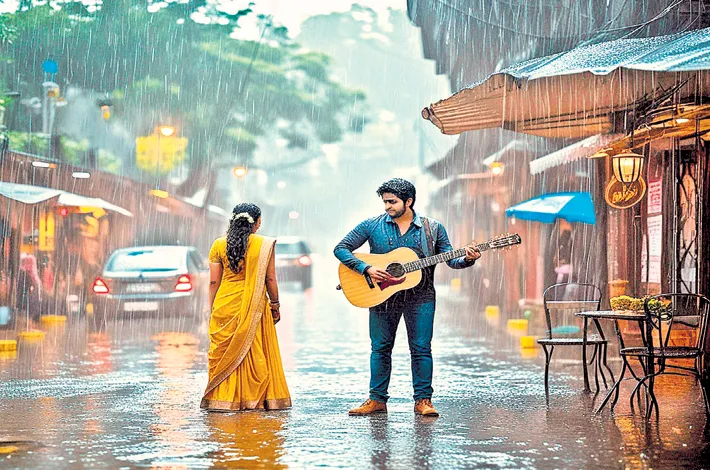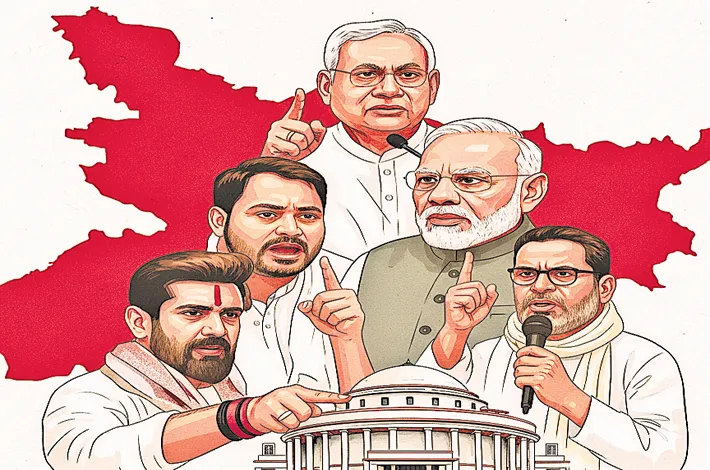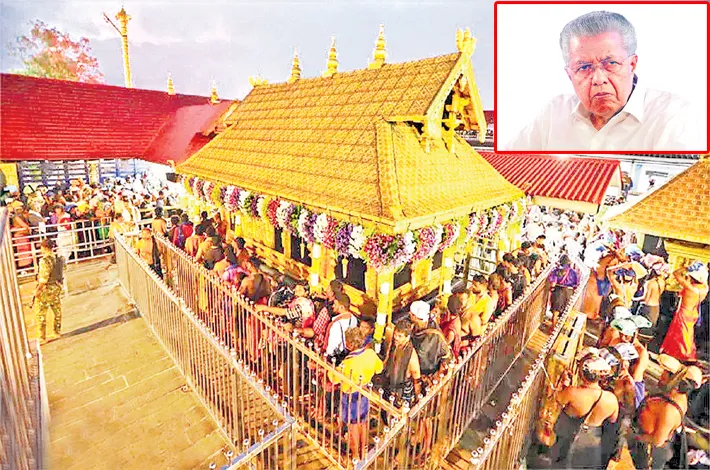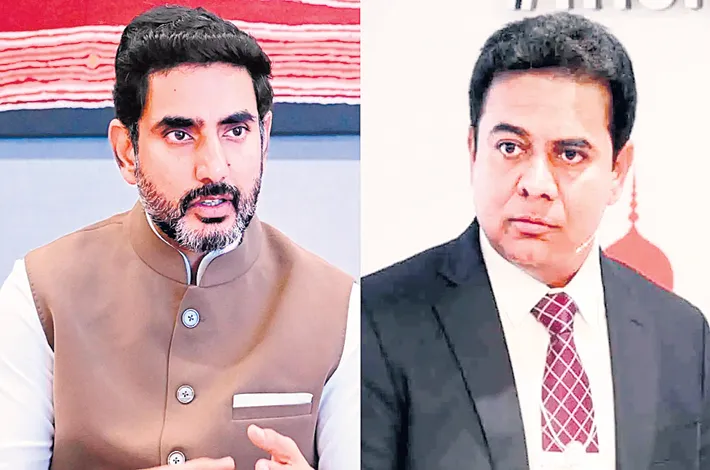A Rainy Day’s Promise
06-07-2025 12:00:00 AM

The monsoon had draped Mumbai in a silver veil, the kind that blurred the edges of reality and dreams. Aarti stood under the awning of a small chai stall, her dupatta clinging to her shoulders, soaked from the sudden downpour. Her eyes, dark and restless, scanned the crowded street. She was waiting for Jai, the boy who had promised her forever under the neon lights of Marine Drive two years ago. But forever, it seemed, had a shorter lifespan than she’d hoped.
Jai was a dreamer, a street-smart charmer with a guitar slung over his shoulder and a smile that could melt the sternest hearts. Aarti, a budding artist with a penchant for sketching the chaos of the city, had met him at a college fest. He’d sung a soulful rendition of Tum Hi Ho, and she’d sketched him mid-performance, capturing the fire in his eyes.
That sketch had been the start of their story—a whirlwind of stolen glances, late-night chats, and promises whispered under the stars. But then, a misunderstanding had torn them apart. Aarti’s family, staunchly traditional, had discovered their relationship and forbade her from seeing “that guitar-wielding nobody.” Jai, hurt by her silence, had left for Delhi, chasing a music career, leaving Aarti with nothing but a half-finished sketch and a heart full of regrets.
Now, two years later, a cryptic message from Jai had brought her here, to this rain-soaked street. “Meet me where the city sings, Aarti. One last time.” She didn’t know what he meant, but her heart had led her to this spot, near the old music shop where they’d once spent hours flipping through vinyl records.
The rain fell harder, and Aarti’s patience waned. Had she misread the message? Was this another false hope? Just as she turned to leave, a familiar strum cut through the patter of rain—a guitar, playing the opening notes of Tum Hi Ho. Her breath caught. She spun around, and there he was, standing across the street, his hair plastered to his forehead, his eyes locked on hers. Jai.
He looked different—older, perhaps, with a shadow of stubble and a leather jacket that made him look like he’d stepped out of a Bollywood poster. But his smile, that crooked, heart-stopping smile, was the same. He strummed the guitar, oblivious to the rain, and began to sing. Passersby slowed, drawn to the raw emotion in his voice. Aarti felt her feet move before her mind could catch up, crossing the street, the rain blurring her vision—or was it tears?
“Jai,” she whispered as she reached him, her voice barely audible over the music. He stopped playing, his fingers hovering over the strings. For a moment, they just stood there, the world reduced to the space between them.
“Why did you leave?” she asked, her voice cracking. “You didn’t even say goodbye.”
Jai’s eyes softened, but there was pain in them too. “You stopped answering my calls, Aarti. Your brother told me you wanted nothing to do with me. I thought… I thought you’d moved on.”
Aarti’s heart sank. Her brother. Of course. He’d intercepted her phone, deleted Jai’s messages, and spun lies to keep them apart. She’d been too naive, too caught in her family’s expectations, to fight back then. But now, standing in the rain, she felt a spark of the courage she’d lost.
“I never stopped loving you,” she said, her voice steady despite the storm around them. “I kept every sketch I made of you. Every note you wrote me. I thought you’d forgotten me.”
Jai stepped closer, the guitar now slung behind him. “Forgotten you? Aarti, every song I’ve written is about you. Every chord, every lyric—it’s all you.” He reached into his pocket and pulled out a crumpled piece of paper. It was her sketch, the one from the college fest, worn but cherished. “I carried this with me everywhere. It’s the only thing that kept me going.”
Aarti’s eyes welled up. She reached out, her fingers brushing against his. The rain seemed to pause, or maybe it was just the world holding its breath. “I’m sorry,” she said. “I should’ve fought for us.”
“And I should’ve stayed,” Jai replied, his voice thick with emotion. “But I’m here now. And I’m not leaving again unless you tell me to.”
The chai stall owner, who’d been watching this Bollywood-worthy scene unfold, handed them a towel with a knowing grin. “Love in the rain is all well and good, but you’ll catch a cold,” he said, breaking the tension. They laughed, the sound mingling with the rain.
They found shelter in the music shop, the familiar scent of old vinyl and polished wood wrapping around them like a warm embrace. Jai played her a new song, one he’d written about a boy who lost his heart to a girl with charcoal-stained fingers. Aarti listened, her heart swelling with every note. She told him about her art, how she’d started painting again, pouring her longing into canvases that now hung in a small gallery nearby.
As the rain slowed to a drizzle, they walked to the gallery, hand in hand. Aarti showed him her latest piece—a vibrant painting of a couple dancing in the rain, their silhouettes blurred but unmistakably them. Jai stood in front of it, silent for a long moment. “You make me see the world differently,” he said finally. “You always have.”
They stepped outside, the city glistening under the fading storm. Jai turned to her, his eyes searching. “Aarti, I don’t know what the future holds. I’m still just a guy with a guitar, and your family might never accept me. But I know I want you in every verse of my life. Will you give us another chance?”
Aarti smiled, the kind of smile that felt like sunlight breaking through clouds. “Jai, I don’t care about anyone else’s rules anymore. I want to write our story together—this time, without interruptions.” They sealed their promise with a kiss, the rain a gentle witness to their reunion. Somewhere in the distance, a street musician played a familiar tune, and Mumbai, ever the city of dreams, hummed along.








